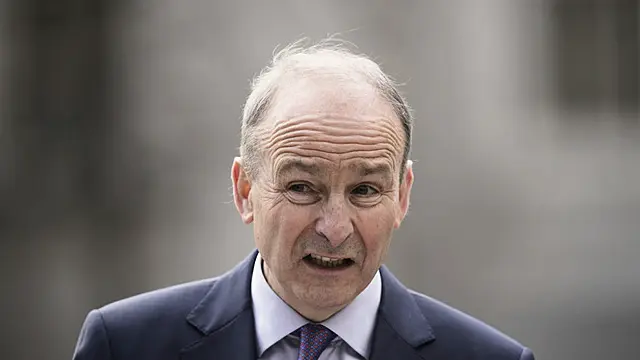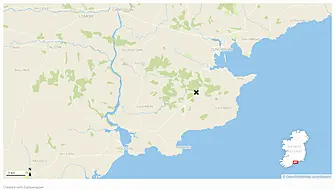Tánaiste Micheál Martin has defended the resounding No votes in two referendums on the Constitution as a democratic choice.
The Minister for Foreign Affairs also admitted that it was possible the degree to which people were pushing for the articles to be changed was overestimated.
The Government’s proposals on family and care votes were overwhelmingly rejected in a vote on Friday that saw a 44 per cent turnout.
The family amendment, which proposed extending the meaning of family beyond one defined by marriage and to include those based on “durable” relationships, lost 67.7 per cent to 32.3 per cent.
The care amendment, which proposed deleting references to a woman’s roles and duties in the home and replacing it with a new article acknowledging family care, lost 73.9 per cent to 26.1 per cent.
The care vote is the highest no vote in any referendum.
Speaking to reporters in Limerick, Mr Martin said he did not accept the resounding no votes were a message to the Government, adding that he believed people voted on the proposal put to them.
He said the change to the constitutional article that refers to a mother’s duties in the home was recommended in a constitutional convention in 1996.
He added: “Suffice to say, this issue has been on the agenda a long, long time and what this Government did was put it to the people.
“The people said we’re happy with the existing provisions in the Constitution – or certainly didn’t accept the propositions or weren’t persuaded to accept the propositions that were put before them.”
He said that although it was worth reflecting on what happened, there “may be” some overreacting over interpreting the defeat of the Government’s proposals.
He added: “I’m comfortable with the people making a decision on something that’s been around for 30 years.
“Successive governments, successive Oireachtas members of all parties, have always advocated for changing these, and maybe it was overestimated the degree to which the people actually were pushing for change to these articles and I think the people gave an answer on Friday which I fully accept.”
Polling information and interviews suggest that among the reasons for the rejection were the lack of clarity around the terms “durable relationships” and “strive” to support family care, as well as the consequences of inserting those words into the Constitution.
Discussions have been taking place on how the referendums were lost, with Fianna Fáil junior minister Mary Butler admitting that not everyone in the Government got behind the campaign.
Asked if the scale of the losses posed issues for the coalition, Mr Martin said: “I’m certainly not approaching it that way.”
He said that in countries where parliaments amend the constitution, it has led to the powers of governments growing.
He added: “We’ve put a proposition before the people, the people have said no, we don’t like what you put forward. I’m comfortable with that.
“If you engage in sort of blame games or whatever, what you’re actually saying is the people got it wrong. As far as I’m concerned, the people made their decision and the people’s will is paramount in a democracy. That’s it. One accepts it and moves on.”
Mr Martin was in Limerick to announce Dee Ryan as Fianna Fáil’s candidate for Limerick’s first directly elected mayor, the vote for which will take place alongside the local elections in June.







